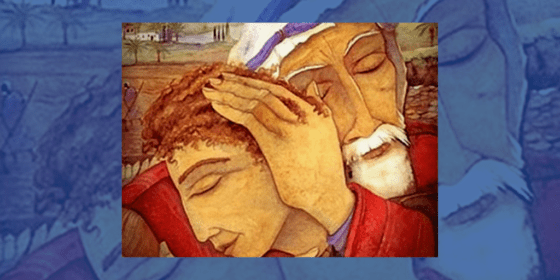Reflection for the Fourth Sunday of Lent Tier C
Readings: Joshua 5:9a. 10 – 12; II Corinthians 5:17 – 21; Luke 15: 1-3. 11 – 32.
When a missionary falls the world is often quick to condemn that individual and to forget all the good the missionary had done for love God and humanity. While a missionary ought to exert every effort while at the same time relying on the grace of God, nevertheless we have to admit and recognize human weakness which might lead to a fall. In other words, when responding whole-heartedly to the missionary call, we must also affirm that the missionary is a human being with a frail nature. The pain of a fallen missionary is increased when those who ought to help the fallen missionary back to his feet, keep pressing this individual to the ground.
The readings reveal the merciful face and compassionate heart of God our Father towards us. In the first reading from the book of Joshua 5:9a, the Lord said to Joshua, This day I have rolled away the reproach of Egypt from you. I would like to relate the term reproach to sin. In proverbs 14:34 the Scripture says, Righteousness exalts a nation, but sin is a reproach to any people. God rolls away our sins when we seek His face with sincerity of heart (expressed through genuine contrition). When a missionary falls, he should seek God’s mercy and then know that he will be forgiven all his sins. The second reading from II Corinthians 5:17 tells us, If anyone is in Christ, he is new creation; the old has passed away, behold, the new has come. In the gospel, that reality is clearly brought to light. While the Father of the prodigal son welcomed the lost son with a warm embrace, his elder brother was angry and refused to join in the celebration of the return of his younger brother. Can the attitude of the elder brother in the parable of the Prodigal Son be found in our experience of community life today in the congregation?
If a fallen missionary were to be left on the ground, there may be no need to have a community. If a fallen missionary were to refuse the helped offered by the community, then it might be asked if such an individual should continue to live among us. We ought to be our brother’s keeper. However, our brother ought to allow us to be his keeper. In the words of Saint Vincent de Paul, Great disunion may arise in the Community when charity is wanting, so is union; consequently, there is no community because what maintains it is union of hearts (CCD:IX:286)
Fr. Augustine Abiagom, CM Province of Nigeria


